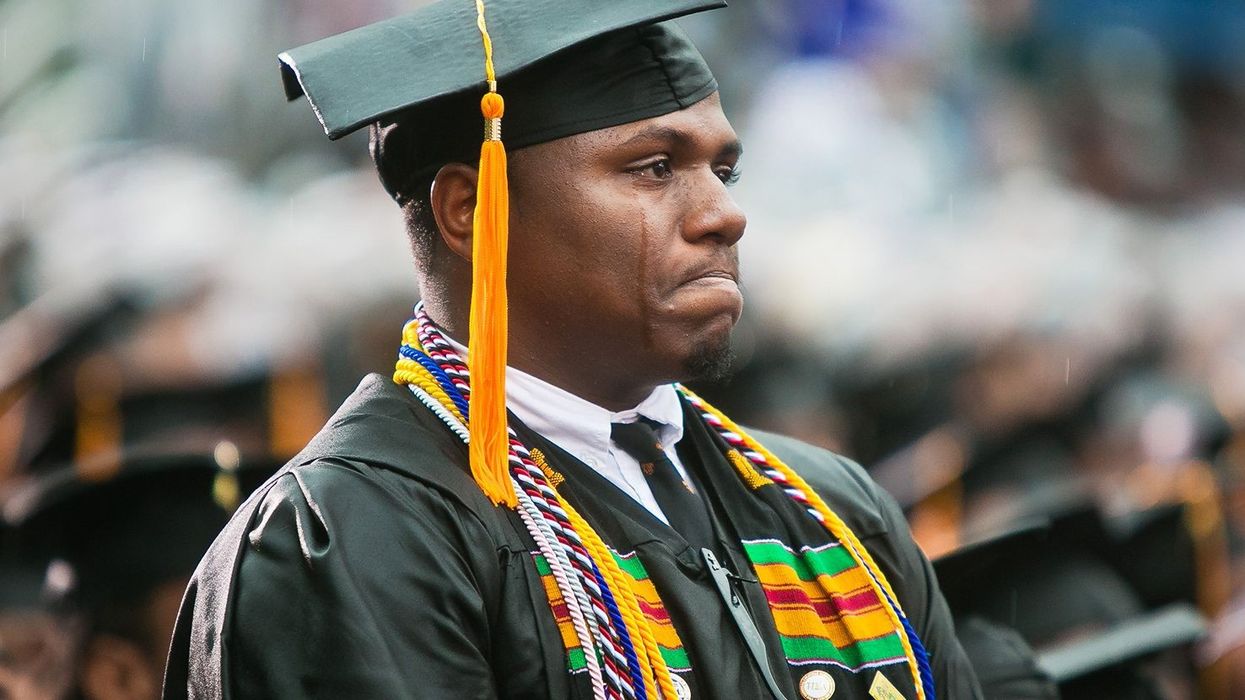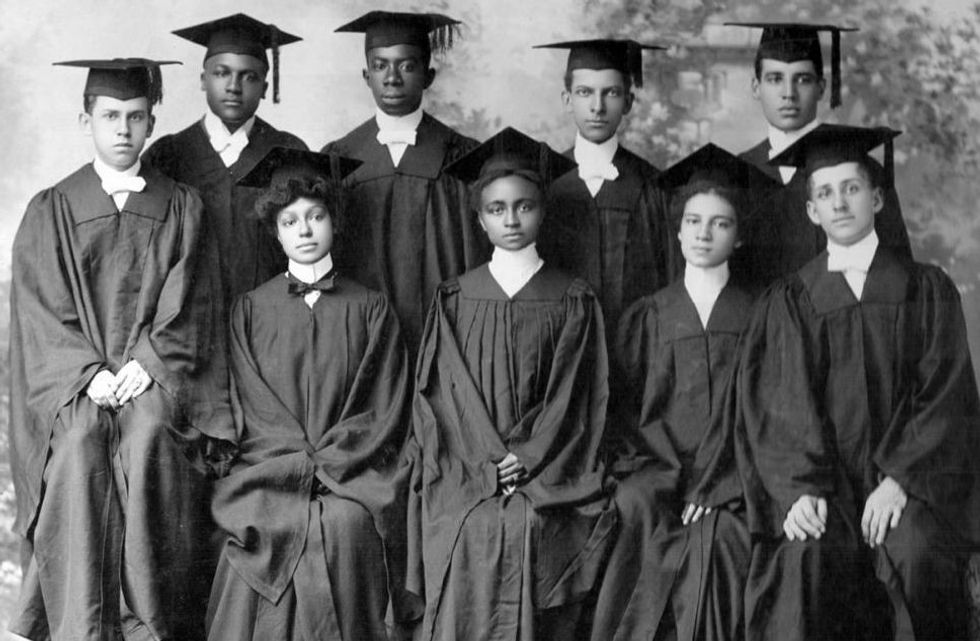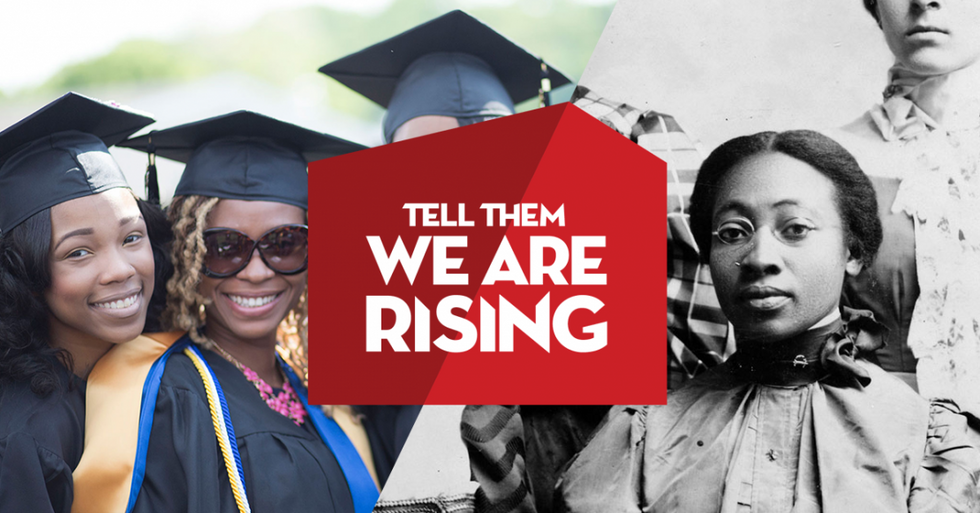With 'Tell Them We Are Rising', Stanley Nelson Finds the Middle of his Black History Trilogy
The MacArthur Genius Grant winner has been telling the oft-misrepresented stories of Black America through his docs for years.

In films like The Black Panthers: Vanguard of the Revolution, Freedom Riders and now Tell Them We Are Rising: The Story of Black Colleges and Universities, MacArthur Genius Grant recipient Stanley Nelson has shown the incredible work done by black Americans over hundreds of years of activism and education. Education takes center stage in his newest film, the undeniably powerful Tell Them We Are Rising, a chronicle of the Historically Black Colleges and Universities (HBCUs) and the ways African-Americans had to inform and enfranchise themselves in a racist world following the end of the Civil War.
The film, which premiered at Sundance 2017 and recently aired on the venerable PBS series Independent Lens, has a massive scope and an equally impressive breadth of information covered—stories largely hitherto only known by those closest to the history of black colleges. No Film School spoke with Nelson about approaching such a titanic subject and making it relatable to modern audiences.
No Film School: What brought you to the story of Tell Them We Are Rising?
Stanley Nelson: There's so many different answers. There's not one thing. One thing that's important for young filmmakers to know when you're making a film, there's gotta be more than one reason to make the movie. I can say it's an important story that needed to be told, I can say my parents went to HBCUs and that changed their lives and my life and my kids' lives, and their kids' lives all the way through the generations. I can also say there were a whole bunch of beautiful pictures and footages that had never been used before or seen before that I knew these schools had.
You think about what do you do at college? You take pictures. You take pictures for the yearbook, you take pictures for publicity, there's gonna be tons of pictures there that people haven't thought to seek out for other films. You watch enough films on African American history, you see the same images over and over again. There weren't that many pictures taken of black folks. But there's a whole treasure trove of pictures at HBCUs. There's a lot of reasons I thought this was an important film to make.
NFS: How did you choose to narrow your focus?
Nelson: One of the biggest challenges was how to tell a hundred and seven years or so of history in an hour and a half. We wanted to give the audience the history but we knew we couldn't cover everything. We wanted to tell the stories that pushed the barrier forward. Something that was critical, that changed the trajectory of black universities.
"We're trying to tell a complete story without a narrator; it can draw the audience in in a very different way."
NFS: Talk about developing your style.
Nelson: One thing that's important, I kind of started out working as an editor on a couple of film projects. That's kind of the basis of where I'm coming from. I'm trying to tell the stories and make them as accessible as possible. I want them to be entertaining. I guess I'm trying to make something that I would like to watch. That's what I'm thinking about when I'm making films. The other thing that's happened is the last four or five films I've done pretty much done without narration. That's a whole other piece of it. We're trying to tell a complete story without a narrator; it can draw the audience in in a very different way. There's a sense of self-discovery, that they're discovering so much of the information themselves, there's nobody telling them the information.

NFS: Can you talk about your approach to financing a film like this?
Nelson: The Panthers and Tell Them We Are Rising are part of a trilogy, the third film is on the Atlantic slave trade. Those are all projects we thought up at Firelight [Media, Nelson's production company] and we approached PBS about putting funding into them as a trilogy. PBS put in a chunk of money that was the basis for us to go out and raise the rest of the money we needed which was substantial.
NFS: Does a film like this ever seem like a risky proposition for networks?
Nelson: In some ways, you could say "Well, the Panthers was made in another era." Two years ago (laughs), another era. Or you could say…Who knows? You could say it's important to tell important history and tell it right and the facts all check out, and that should be something that PBS or anyone should want to back. The Panthers was the most watched film ever on Independent Lens. So from a ratings standpoint, it did great. We had very little challenges or even comments about the content because everything in the film is backed up over and over again by the facts. What are we saying? Are there certain pieces of our history we're not supposed to talk about?
"I'm trying to make films from an African-American point of view; it's the only point of view I have."
NFS: Can you talk about the epilogue? It's a leap in the chronology and tone, in that it seems so exuberant and hopeful?
Nelson: We wanted to bring it up to the present. That was always our aim. How do we get this story, which started in slavery, when it was illegal for African-Americans to read and write, and get it to the present. What is college? What is graduation? It's this time when everyone's happy and celebrating. We wanted to get those images into the film. If you look at the film as a circle, at the beginning we start with African-Americans unable to read and write and the horrors of slavery and we end with this celebration at black schools. That was something we really wanted to do it was just a matter of how to get there, to bring the audience along on that journey.

NFS: And maybe to counter the media representation of trauma in the black community?
Nelson: It's important to understand that as an African-American, that's not our reality. I'm trying to make films from an African-American point of view; it's the only point of view I have. I'm an African-American. My reality is not one of tragedy and it's not one that we see; the majority of our reality in the African-American community. It's part of me, it's part of whatever film I make.
NFS: Do you have advice for filmmakers trying to break into nonfiction?
Nelson: The most important thing is for young filmmakers to have as many skills as they can. The first film that I made, Two Dollars and a Dream, I was the director, I was the co-writer, I was the editor and I did sound. Those are all positions I didn't have to pay anyone for, it made the film a lot cheaper. There's no magic bullet for funding but there are ways you can get the film done. If you're making your first film part of it is: what film can I make relatively inexpensively? If you're a young filmmaker, you're not trying to make a film about the history of Christianity or something. What film can you make that you have a special insight into? What film can you make fairly cheaply? You wanna get that first film made. It's tough to raise a million dollars, a hundred thousand dollars, if you have no track record. Crowdfunding can also be a way to fill the gaps.
'Tell Them We Are Rising' is currently available for free streaming on PBS.











